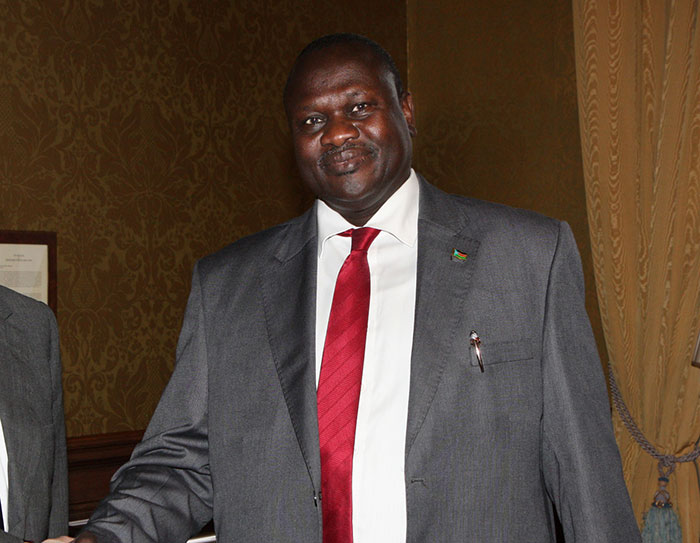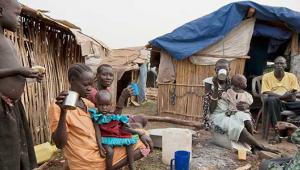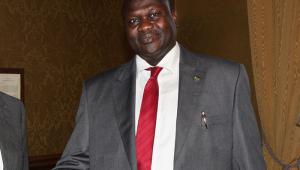web_riek-machar_8345739210_6d0202d6d2_o.jpg

South Sudan's rebel leader Riek Machar failed to show up in Juba to assume the vice presidency. Credit: UK Foreign and Commonwealth Office
Machar had been due to take up the post of first vice president to the new unity government in Juba on Monday, a central pillar of the peace deal which hoped to end more than two years of brutal conflict in the world’s youngest country.
In a statement Festus Mogae, chairman of the Joint Monitoring and Evaluation Commission, the body monitoring the peace deal, warned “the agreement is at risk”.
“Having come so close to the formation of the transitional government of national unity, all parties must ensure that the spirit of reconciliation, compromise and dialogue embodied by the agreement should be protected.”
Officials said yesterday Machar’s arrival had been postponed indefinitely due to “logistical reasons”, but today the South Sudanese government and rebel forces were accusing each another of hindering his return to the capital.
The government argued Machar had tried to return with an “arsenal of arms”.
US State Department spokesman John Kirby said the US had gone to “great lengths” along with other partners to facilitate his return, and was disappointed by Machar’s “wilful decision” not to abide by his own commitments.
“His failure to go to Juba despite efforts from the international community places the people of South Sudan at risk of further conflict and suffering,” he stated.
South Sudan’s civil war broke out shortly after the country gained independence from Sudan in 2011. Two years later a political power struggle broke out between president Salva Kiir Mayardit and Machar, who was vice president at the time.
Machar was sacked in July of that year, and a few months later in December accused of trying to organise a coup. He denied this, but it sparked violence that eventually developed into full-blown conflict divided along ethnic lines.
A peace deal was signed in August 2015, but its implementation has been slow and tainted by continued violence, with breaches of the ceasefire on both sides.
Yesterday the United Nations refugee agency the UNHCR expressed “extreme concern” over a combination of new fighting in previously peaceful areas, food insecurity, and severe humanitarian funding shortages causing a further decline in the situation for many civilians throughout the country.












